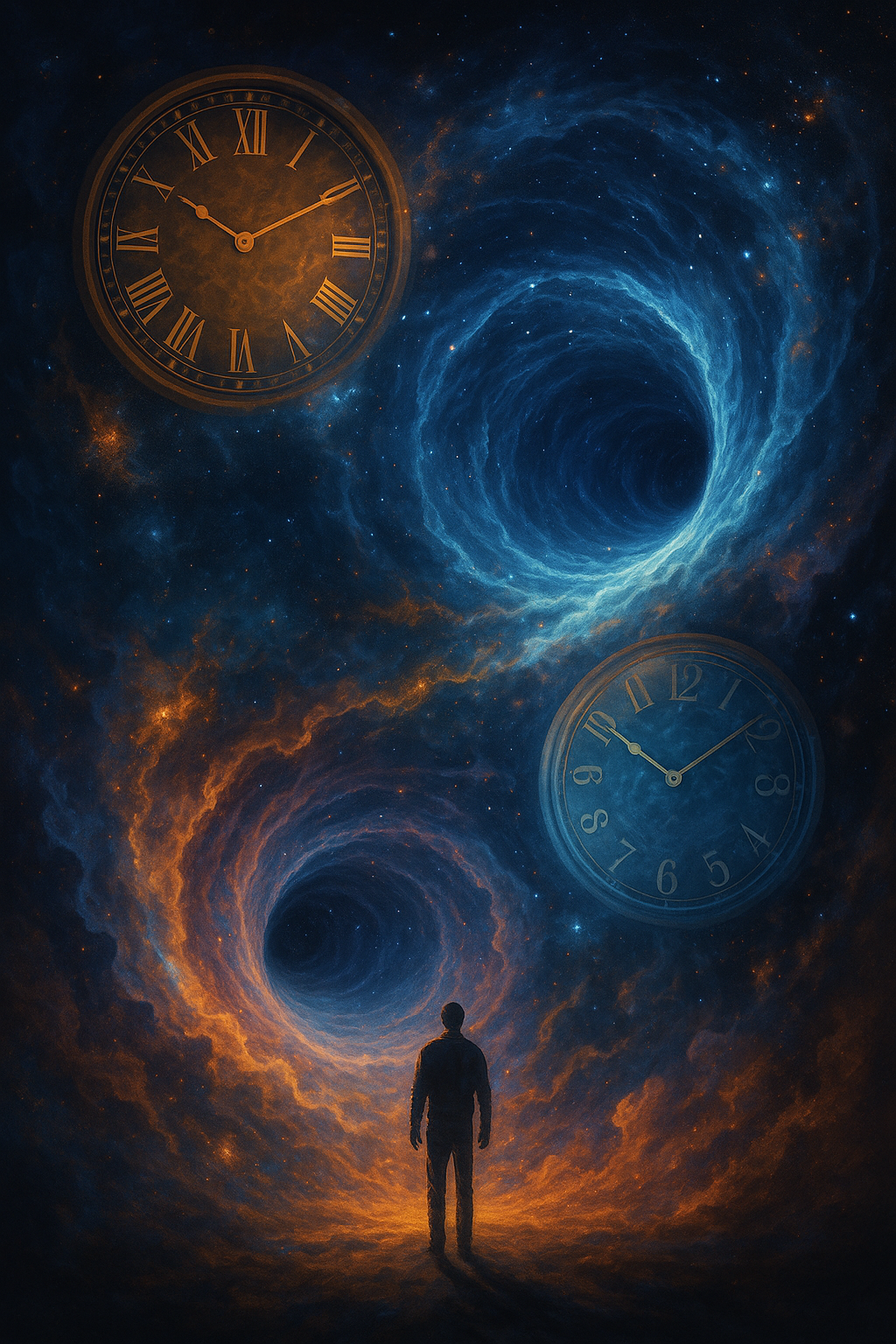Time travel has fascinated humanity for centuries. With countless theories and concepts surrounding the idea, many wonder: is time travel possible? This article delves into the scientific perspectives, theories, and paradoxes that attempt to answer this intriguing question.
Understanding Time Travel: A Conceptual Overview
To grasp whether is time travel possible, we first need to understand the basic framework of time travel theories. At its core, time travel implies moving between different points in time, much like how we can traverse space.
Theoretical Foundations of Time Travel
The foundation of theoretical time travel is heavily influenced by physics, particularly Einstein’s theory of relativity. According to this theory:
* Time is relative: It can vary depending on the observer’s speed and gravity.
* Time dilation: This phenomenon indicates that time can pass at different rates for people in different gravitational fields or moving at different speeds.
Thus, while is time travel possible, the lens of relativity offers a gateway. For instance, an astronaut traveling near the speed of light experiences time much slower than those on Earth. This fact gives rise to speculative forms of time travel.
Time Travel Theories to Consider
Various time travel theories exist, each proposing different modalities and possibilities. Here are some prominent ones:
1. Wormholes
Wormholes are hypothetical structures connecting two separate points in space and time. If they exist, they could, in theory, allow for instantaneous travel between the two endpoints, making time travel a possibility. However, they remain purely theoretical without experimental evidence supporting their existence.
2. The Multiverse Theory
Another fascinating concept is the multiverse theory. According to this idea, multiple universes exist parallel to ours, and changes made in one universe may lead to the creation of branching realities. This implies that time travel might result in timelines where different outcomes unfold, raising questions about causality and reality.
3. Closed Time Loops
Closed time loops present scenarios where an individual might travel back in time and interact with their past self. This leads to paradoxes, such as the famous grandfather paradox, where altering events could prevent one from existing. Such theories challenge the very notion of deterministic timelines.
Can Time Travel Happen?
The short answer is: we don’t know. While theoretical frameworks suggest plausible mechanisms, no empirical evidence currently demonstrates that time travel can or does occur. Scientists continue to explore these concepts as new technologies emerge and our understanding of physics deepens.
The Science Behind Theoretical Time Travel
The science of time travel requires a robust grasp of physics. Here are some critical points:
* Einstein’s General Relativity: Discusses how massive objects cause spacetime to curve, creating the potential for time dilation and, theoretically, travel.
* Quantum Mechanics: Some interpretations suggest that particles can exist in multiple states simultaneously, further compounding the multiverse concept related to time travel.
Famous Thoughts on Time Travel
Renowned physicist Stephen Hawking was among the many who pondered the nature of time. He even devised a “chronology protection conjecture” a theoretical principle suggesting that the laws of physics prevent time travel on macroscopic scales. According to Hawking, if time travel to the past were possible, we would already be encountering time tourists from the future. Since we don’t observe this, he argued, there must be constraints at play that prevent backward time travel.
Still, Hawking remained open to the possibilities of forward time travel, especially under conditions predicted by general relativity such as time dilation near black holes or at near-light speeds.
Time Travel Paradoxes and Challenges
Time travel theories often lead to logical paradoxes that question the feasibility of altering timelines:
* The Grandfather Paradox: If someone travels back in time and prevents their grandfather from meeting their grandmother, they could never be born but then who went back in time?
* The Bootstrap Paradox: An object or piece of information is sent back in time and becomes trapped in a loop with no clear origin.
* Causal Loops: A future event triggers a past event that, in turn, causes the future event. These loops raise philosophical questions about determinism and free will.
These paradoxes highlight one of the core theoretical issues with time travel: causality the principle that cause precedes effect. Violating this principle would force a dramatic rethinking of the structure of time itself.
The Role of Technology and Future Discoveries
While current technology does not permit time travel, cutting-edge experiments in quantum physics, gravity, and high-energy particle collisions may inch us closer to understanding its feasibility. Some areas of active exploration include:
* Quantum entanglement and retrocausality
* Exotic matter with negative energy density, which would be necessary to stabilize wormholes
* Black hole thermodynamics, which may offer insights into the nature of time and entropy
However, even if the physics checks out, the engineering hurdles are astronomical. Building a stable, traversable wormhole or generating sufficient energy to bend spacetime are well beyond our current capabilities.
Conclusion: Is Time Travel Possible?
So, is time travel possible? From a theoretical standpoint, the door remains ajar. Modern physics especially relativity and quantum mechanics provides conceptual blueprints for how time travel might work. Yet, the lack of empirical evidence and the unresolved paradoxes suggest that we are still far from turning science fiction into science fact.
Nevertheless, the idea of time travel continues to captivate scientists, philosophers, and dreamers alike, pushing the boundaries of imagination and inspiring breakthroughs in our understanding of the universe.
